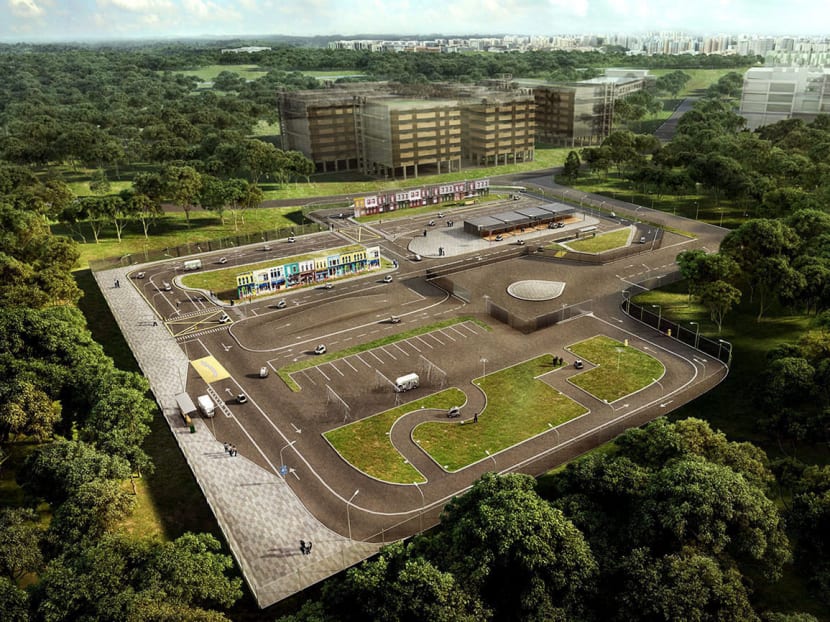Research, test centre for self-driving vehicles launched
SINGAPORE — With autonomous vehicle (AV) technology growing more advanced by the day, the authorities here have launched a new centre and test circuit to develop testing requirements for such vehicles.

An artist’s impression of the 1.8ha test circuit, which houses a 3.2km track and will be ready next year. Photo: JTC
SINGAPORE — With autonomous vehicle (AV) technology growing more advanced by the day, the authorities here have launched a new centre and test circuit to develop testing requirements for such vehicles.
The Centre of Excellence for Test and Research of AVs – NTU, or Cetran, is a joint project with Nanyang Technological University (NTU) and government industrial developer JTC Corporation. The 500sqm centre, set to open in the next three months, will be located at CleanTech Park near the university. It will craft standards and test methodologies for self-driving vehicles to ensure their safe operations on the roads.
The 1.8ha test circuit, which houses a 3.2km track, will be ready next year.
Senior Minister of State (Transport) Josephine Teo, who attended the launch yesterday, said: “Although many countries and cities are testing self-driving vehicles, we have yet to see international standards and regulations suitable for large-scale deployment.”
The centre and test circuit would put Singapore “at the global forefront” of developing these standards, integrating self-driving vehicles safely into the transport network, Mrs Teo said.
Professor Lam Khin Yong of NTU pointed out that traditional testing methods would not suffice for these vehicles. Non-autonomous vehicles are assessed on their safety from a physical perspective, with design, construction and driver’s control being taken into account.
For an autonomous vehicle, the “driver” is simply a network of sensors and electronic controls.
Prof Lam said: “It is no longer the person who is in control, but an artificial intelligence network capable of deep machine learning ... It will be in constant communication with other vehicles, with infrastructure such as traffic lights and with dispatch and routing systems, thus making it vulnerable to cyber-security challenges.”
NTU’s Professor Subodh Mhaisalkar said that the centre, with its working team of up to 30 people, would study certification and test software and sensors. Much of the work will be done via simulations, and at a later stage involve tests on the circuit and selected roads. “Once these multiple phases are completed, the AV would be certified for operation in a mega city like Singapore,” he said.
At least 10 to 15 vehicles can run on the circuit simultaneously, he added. “Some will be AVs, some will be conventional vehicles. We really need to see a mix of different vehicles and pedestrians to simulate as real a situation as possible.”






